News in Brief
-
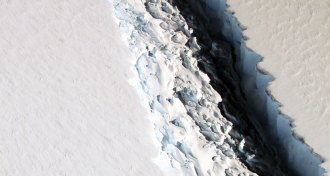 Earth
EarthCrack in Antarctica’s Larsen C ice shelf forks
An 180-kilometer-long rift in Antarctica’s Larsen C ice shelf has forked into two branches, new satellite observations show.
-
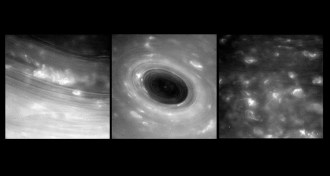 Planetary Science
Planetary ScienceCassini’s ring dive offers first close-up of Saturn’s cloud tops
Cassini has completed its first dive between Saturn and its rings. Along the way, it snapped stunning pics of the planet’s atmosphere.
-
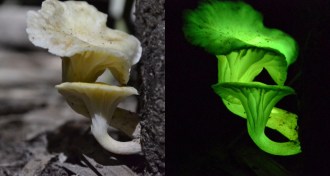 Life
LifeHow a mushroom gets its glow
For the first time, biologists have pinpointed the compound that lights up in fungal bioluminescence.
By Susan Milius -
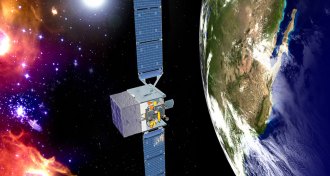 Physics
PhysicsGamma-ray evidence for dark matter weakens
Excess gamma rays are still unexplained, but they might not come from dark matter.
-
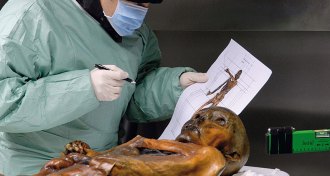 Anthropology
AnthropologyÖtzi the Iceman froze to death
Copper Age Iceman froze to death, with shoulder and head damage.
By Bruce Bower -
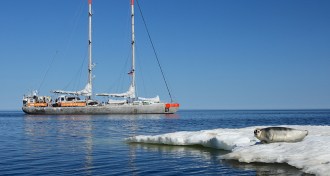 Oceans
OceansThe Arctic is a final garbage dump for ocean plastic
Ocean currents dump plastic garbage from the North Atlantic into previously pristine Arctic waters, new research shows.
-
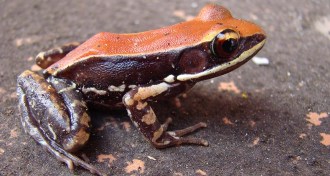 Health & Medicine
Health & MedicineFrog slime protein fights off the flu
Urumin, a protein found in Indian frog mucus secretions, has a knack for taking down H1 flu viruses, a new study finds.
-
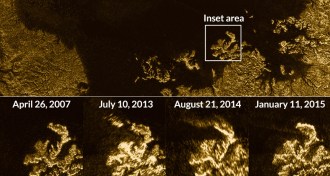 Planetary Science
Planetary ScienceNitrogen fizz fuels ‘magic island’ on Titan, simulation suggests
Nitrogen bubbles may be the source of the “magic island” on Saturn’s moon Titan.
-
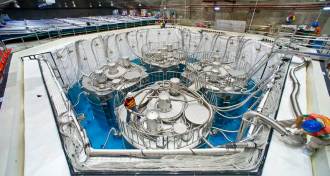 Particle Physics
Particle PhysicsNew particle probably can’t explain nuclear reactor neutrino mystery
An antineutrino anomaly seems due to problems with scientists’ predictions, not sterile neutrinos.
-
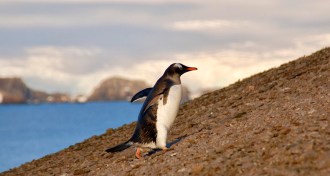 Ecosystems
EcosystemsVolcanic eruptions nearly snuffed out Gentoo penguin colony
Penguin poop dumps data on how a Gentoo colony responded to ancient volcanic eruptions.
-
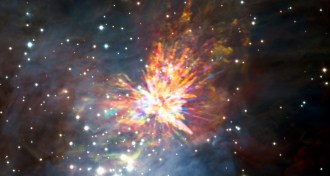 Astronomy
AstronomySquabbles in star nurseries result in celestial fireworks
Images from the ALMA observatory in Chile reveal that early days of stars can be just as fiery as their death.
-
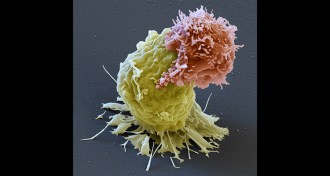 Health & Medicine
Health & MedicineEngineered immune cells boost leukemia survival for some
Engineered immune cells can extend life for some leukemia patients.